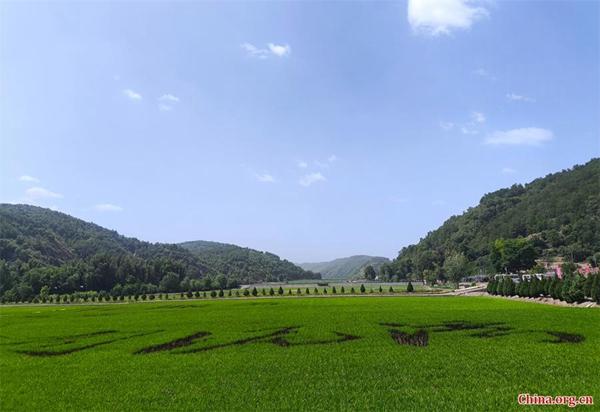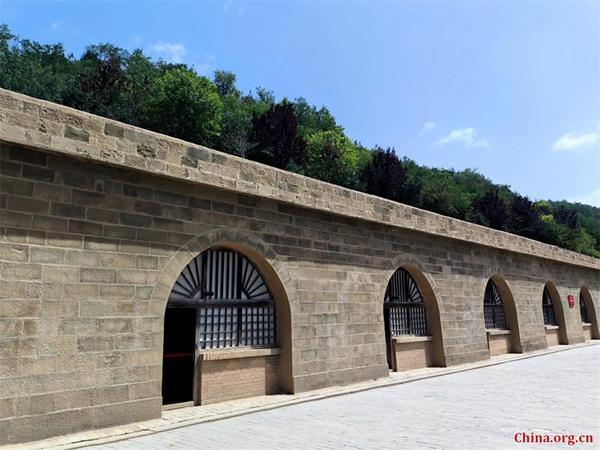
 0 Comment(s)
0 Comment(s) Print
Print E-mail China.org.cn, June 25, 2024
E-mail China.org.cn, June 25, 2024
Paddy fields in the Nanniwan Scenic Area in Yan'an, Shaanxi province, June 24, 2024. [Photo by Xu Xiaoxuan/China.org.cn]
Nestled in Yan'an city, northwest China's Shaanxi province, Nanniwan town stands as a beacon of revolutionary heritage and modern ecological tourism. Originally a symbol of the Communist Party of China's early reclamation efforts, Nanniwan has evolved into a thriving example of rural revitalization, blending ecology with cultural tourism to pave a new path of development.
Today, Nanniwan attracts visitors from across China, who come to explore the rich historical sites and enjoy the scenic beauty of the area.
"After a day of touring, visitors can enjoy a bowl of mushroom noodles or try our local stewed chicken at my eatery," says Feng Yan'an, a resident of Taobaoyu village in Nanniwan. Feng, who returned to his hometown in 2021 after several years working elsewhere, transformed his seven-room home into an agritainment business. Last year, his modest establishment generated a net income of over 300,000 yuan.
Feng's success story is part of a larger trend in Taobaoyu village. With initiatives such as the inauguration of the Nanniwan Revolutionary Culture Town in 2017, as well as the Baota District Water System Connectivity and Beautiful Countryside Construction Pilot Project in 2020, the village has embraced the goal of building a beautiful and livable rural area. Taobaoyu village was named a beautiful, livable demonstration village in Shaanxi in 2022.
Wang Lin, first Party secretary of Taobaoyu village, recalled the time when unkempt vegetation and barren patches marred the landscape, and the riverbeds were choked with silt, sometimes even running dry. "After ecological development, the rivers were dredged, becoming twice as wide and crystal clear," Wang said.

Former cave dwellings in the Nanniwan Scenic Area in Yan'an, Shaanxi province, June 24, 2024. [Photo by Xu Xiaoxuan/China.org.cn]
Wang emphasized the importance of ecology as the foundation of tourism. "Yan'an has abundant revolutionary tourism resources, but visitors were spread out, and there was no well-defined tour route," he explained. "The integration of ecological enhancements with improved transportation has now begun to attract a growing tide of tourists."
Taobaoyu village now boasts seven agritainment establishments and six boutique homestays, repurposing empty properties and enabling villagers to find employment locally.
Liu Gang, director of the Project Management Department of the Nanniwan Development Zone, highlighted the inclusive nature of Nanniwan's tourism industry. "The tourism industry engages the entire community," he noted. "The youth can start businesses by running agritainment restaurants and promote cultural tourism via livestreaming, while the elderly can work in hospitality and sanitation, marking a shift from traditional agriculture to service-oriented professions."
With annual visitor numbers surpassing a million, Nanniwan is not only a hub for revolutionary-themed education, but also a catalyst for comprehensive rural rejuvenation and the flourishing of ecotourism.